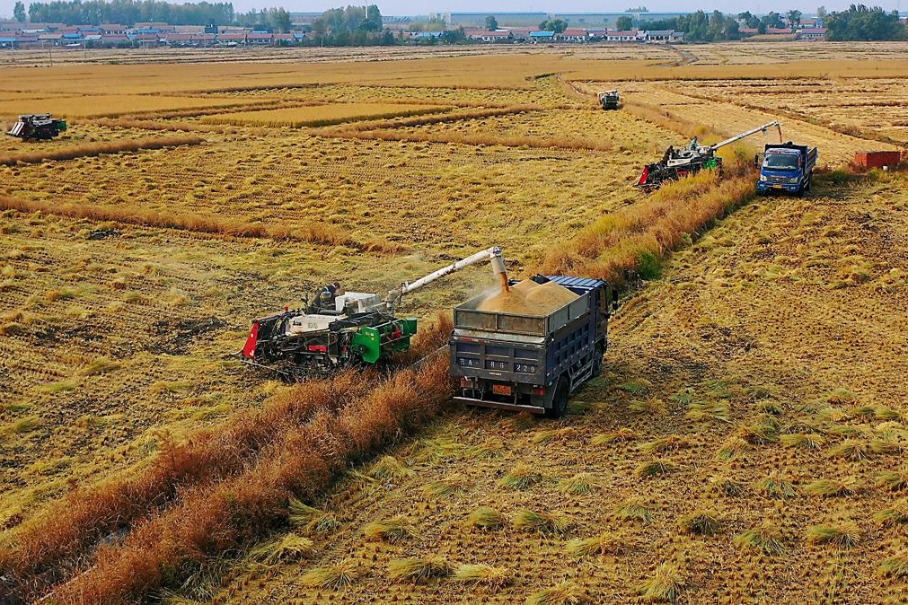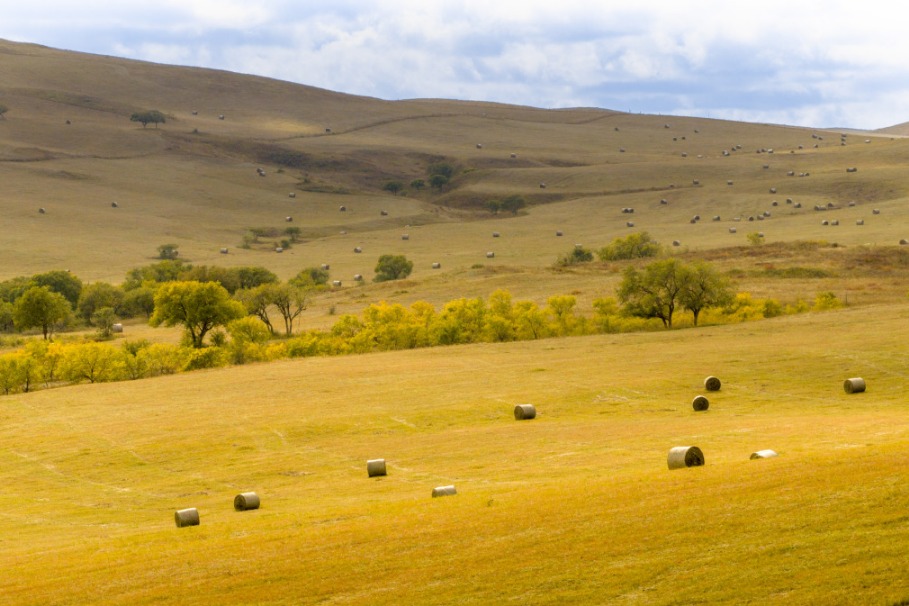Nation urged to embed nature into frameworks

A special adviser with the China Council for International Cooperation on Environment and Development is calling on the nation to embed nature into its fiscal, institutional and investment frameworks during the 15th Five-Year Plan period (2026-30).
China's climate-related disasters throughout 2024 and 2025 — from floods to record heat — underscored the systemic risks of ecological breakdown, making resilience through "nature infrastructure" an urgent priority, said Bernice Lee, who is also a distinguished fellow and senior adviser at London-based think tank Chatham House and a senior adviser with Nature Finance, an international think tank.
"Premier Li Qiang's 2025 Government Work Report reflects this urgency, placing green transition and systemic resilience at the heart of China's modernization and long-term development," Lee said.
The premier's emphasis on resilience reflects a strategic deepening of China's long-term strategy, she stressed.
Just as solar power and batteries became pillars of high-quality growth in China once recognized as critical infrastructure, she said the same logic can be applied to forests, wetlands and soils.
"These are living assets that safeguard food and energy security, reduce disaster risks and strengthen 'common prosperity'. In today's climate-vulnerable era, recognizing nature as core infrastructure is both an ecological imperative and a resilient economic strategy," she stated.
Lee observed that China has institutionalized this approach through Ecological Conservation Redlines, Main Functional Zones and Gross Ecosystem Product accounting.
These frameworks integrate ecosystems into development planning while enforcing ecological accountability. The ECR system in particular treats forests and wetlands as strategic assets, she said.
Recognizing nature's role is just the tip of the iceberg, Lee emphasized. The next step is embedding it into finance and development institutions, from sovereign credit ratings to fiscal frameworks.
She said nature-related risks create hidden liabilities that can destabilize public budgets. Globally, tools such as fiscal stress tests, which are used by the International Monetary Fund and the Network for Greening the Financial System; debt-for-nature swaps seen in Costa Rica and Latin America; and blue bonds implemented in the Seychelles demonstrate that treating natural capital as an asset can reduce fiscal risk and attract investment.
"China is well-positioned to lead. With the ECR framework and a growing green-debt market, natural capital can be integrated into budgeting, fiscal stress tests and outcome-linked instruments such as ECR bonds," she said.
Lee advised that mainstreaming natural capital into core budgets, scaling and standardizing outcome-linked bonds, piloting debt-for-nature conversions, and publishing verifiable ecological outcomes to inform policy and investors are practical next steps China should take.
"By doing so, China can treat nature not as a cost, but as a stabilizing, investable asset," she said.
Lee stressed that the bio-economy is a sustainable socioeconomic model focusing on industries and value chains that promote the renewable use of biological resources to address climate change, food security, economic development and poverty reduction.
By advancing bio-economic principles that combine competitiveness and resilience, and leveraging strengths in agritech, biotech and clean energy, China can champion innovations such as regenerative agriculture and alternative proteins, she said. Linking these to blended finance, nature credits and sustainability-linked mechanisms could catalyze equitable, nature-positive growth globally.
"The good news is that China is not starting from scratch," Lee said, adding that over the past two decades, the nation has become a central force in scaling clean technologies — from solar and wind power to batteries and electric mobility.
"China's leadership in clean energy technology shows what's possible. The 15th Five-Year Plan is an opportunity to extend this leadership by contributing to the bio-economy — sustainable materials, green chemistry, regenerative agriculture, nature-smart infrastructure — a $4 trillion-and-growing sector," she remarked.
Like clean energy two decades ago, Lee said the bio-economy offers both security and competitive dividends if it is positioned by the Chinese government as core infrastructure.
By placing nature at the heart of economic governance during the 15th Five-Year Plan period, China can help shape a more resilient future — for itself and for the world.
"In doing so, it would extend its legacy of turning risk into advantage — as it once did with solar, it can now do with soil," she said.
houliqiang@chinadaily.com.cn
- Nation urged to embed nature into frameworks
- Intl cooperation seen as vital to advance global greening
- More mainland ports to offer entry permits on arrival to Taiwan residents
- Bibliography unveiled at Shanghai forum
- Yangtze River Delta at forefront of innovation drive
- Congratulations sent to Seychelles' president-elect





































